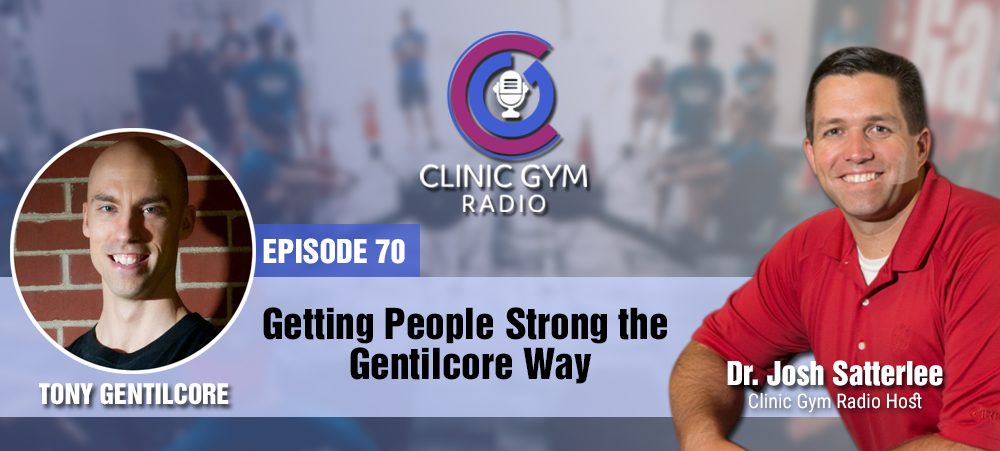
Tony Gentilcore is a strength coach and has been in the industry for over 15 years. He’s the owner of CORE (his gym in Boston) and the leader in tonygentilcore.com. He has a blog where he writes about strength training, rehabilitation and his cat mixed with He-man and Star Wars.Tony shares his experience with training professional athletes and the general population and how important it is to not make your clients feel like a “walking ball of fail”.
“[It’s not] to point out every little thing that's wrong with the individual. It's really to show them what we can do. Let's find that trainable menu, let's see what feels better and works better.”
- How crucial it is to just start on what you want to do, making the first step and know that failing is all part of the process.
- The importance of a gym walkthrough in your onboarding process to accommodate clients who are new to bodybuilding and exercising.
- Reintroducing proper diet, rest and exercise to professional athletes.
- How assessment of clients’ overall fitness, health and body type help a trainer better formulate a program that’s right to the client’s needs.
- Differences in training the general population and professional athletes, approaches a trainer can apply in building a program.
- Making sure that when you write a program that it’s your client’s goals not the trainers’.
Crucial Takeaways:
- Knowing your limitations as a personal trainer and a strength coach. Setting up a timeline where you work with a client and, if there’s no improvement, to refer to other care providers and “bridge that gap” for the benefit of the client.
- Setting performance based goals gives intent to your program where your clients feels that they’re going to the gym with purpose which greatly helps with the psychological part of the training and keeps them motivated.
- Doing exercises correctly and figuring out the right amount of resistance to apply to certain exercise movements,according to client’s physique, can correct workout positions and minimize injuries and strains.
- Synergy between care providers and trainers reinforces confidence in clients doing certain movements, especially those who are dealing with long standing injuries and has developed fear avoidance.
- Our words matter. Trainers and clinicians can affect the psychology part of the rehabilitation or training in building self-determination, competency and autonomy.
- In writing a program, take your ego out of it. Put in what’s realistic, what’s an attainable goal for the client and remember that’s it’s about them, not you. Walk them into the proper progressions.
Related links and references:
Tony’s website and blog: https://tonygentilcore.com/
Twitter: https://twitter.com/tonygentilcore1
Instagram: https://www.instagram.com/tonygentilcore/
Facebook: https://www.facebook.com/tonygentilcorefanpage/
More Episodes
 2023-01-10
2023-01-10
 2022-12-06
2022-12-06
 2022-11-08
2022-11-08
 2022-10-18
2022-10-18
 2022-07-26
2022-07-26
 2022-05-03
2022-05-03
Create your
podcast in
minutes
- Full-featured podcast site
- Unlimited storage and bandwidth
- Comprehensive podcast stats
- Distribute to Apple Podcasts, Spotify, and more
- Make money with your podcast
It is Free
- Privacy Policy
- Cookie Policy
- Terms of Use
- Consent Preferences
- Copyright © 2015-2024 Podbean.com






